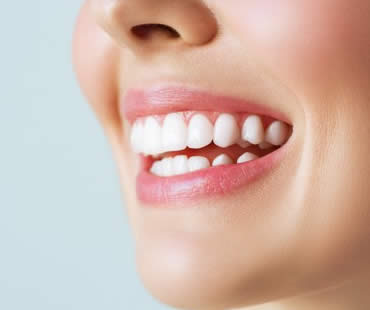May 20, 2022 | Dental Topics 3, Dental Information, Blog
If you have a true dental emergency, make sure to consult your dentist right away. Some situations may arise, however, that after hours, so it’s important to know how to proceed. These tips will help you take good care of yourself or someone you love:
• Bitten lips, cheeks or gums
First, gently rinse the area with cool water. Apply light pressure with gauze or a wash cloth. Control swelling with crushed ice in a Ziploc bag.
• Bleeding gums
Usually caused by gum disease or brushing too hard, treat bleeding gums by rinsing with warm water and creating a regular home care routine that includes brushing twice a day and flossing regularly. See your dentist for a complete exam.
• Canker sores
Rinse the area with warm salt water. Avoid spicy, acidic, or very hot foods when you have an open sore. If the area doesn’t heal in two weeks, contact your dentist.
• Broken or cracked tooth
Carefully rinse the area with water, salt water if possible. Don’t remove any pieces and bring all fragments with you to the dentist’s office.
• Loose baby tooth
Don’t pressure your child to pull the tooth. Encourage your son or daughter to wiggle the tooth side to side as well as back and forth to help free the tooth.
• Teething pains
Place a wash cloth in the freezer and allow your baby to suck on it to relieve pain. Mild over-the-counter analgesics may also help.
• Toothaches
Avoid irritating the tooth. Don’t bite down on the area, and avoid hot or cold substances. Schedule an appointment with the dentist as soon as possible.
If you live in the Central Falls area contact us today

Oct 28, 2022 | Dental Topics 3, Dental Information, Blog
Seeing your dentist twice a year is an important part of keeping your oral health in good condition. While this activity may not top the list of fun things to do, a dental visit doesn’t have to make you miserable either. With a little planning, you can ensure that your dental visit is a positive experience.
• Find the right dentist.
Selecting a dentist that you feel comfortable with will go a long way towards creating a good dental visit. At Brown, Reynolds & Snow, we understand that finding doctors with broad knowledge and expertise in all areas of dentistry will provide you with that extra incentive and confidence in seeking the smile you have always desired.
• Provide all the facts
Your dentist can do a better job meeting your needs if you are up front about any concerns you have or any problems you have been experiencing.
• Take care of your mouth
If you don’t brush and floss regularly, you are setting yourself up to fail. Good home care can prevent problems like gum disease and tooth decay from developing, which will save you extra time in the dental chair.
• Schedule routine exams
When you don’t see a dentist for years, your mouth won’t be in the best condition. Visiting the dentist twice a year ensures that you get professional cleanings and it allows the doctor to watch for signs of trouble.
• Try to relax
Deep breathing exercises or mediation may calm your nerves. If you feel especially anxious about your dental visits, talk with the dentist about your fears, and see what options the practice has available to make you more comfortable.
If you need a dentist in Central Falls contact us today

May 27, 2022 | Dental Topics 3, Dental Information, Blog
The basic definition of oral health is the wellbeing of your teeth, gums, mouth, and supporting tissues. As well, the idea of oral health also has to do with having no pain or problems that interfere with your mouth or its functions. Without a toothache or bleeding gums, you may give your oral health little thought. Often, people take their oral health for granted, but it can actually impact your whole body.
Common Oral Health Problems:
Tooth Decay
Generally thought of a kid’s concern, cavities can strike at any age. Once you have tooth decay, it puts you at greater risk of developing more cavities in the future. Brushing at least twice a day, flossing often, and seeing your dentist on a regular basis will help reduce your risk for tooth decay and keep your oral health in top shape.
Gum Disease
Also referred to as periodontal disease, gum disease affects three out of four American adults. Because the early symptoms, swollen or bleeding gums, are mild, gum disease can go undetected. Without treatment, it can lead to gum recession, bone degeneration, and tooth loss. Studies have also linked periodontal disease to overall health issues such as heart disease and osteoporosis.
Lost Teeth
Approximately 69 percent of adults in the U.S. are missing at least one tooth. When you lose teeth, the remaining teeth are in jeopardy of coming out if you don’t close the gap in your smile. Not only do missing teeth make you self-conscious about your appearance, but they can also cause oral health problems such as alignment issues and bone loss.
Oral Cancer
With a higher mortality rate than cervical, liver, or ovarian cancer, oral cancer strikes more than 30,000 Americans each year. If caught in the early stages, the survival rate increases significantly. During your routine exams, your dentist will look for signs of suspicious tissue or other indications of trouble.
Our dental office is located in Central Falls

Apr 14, 2023 | Dental Topics 3, Cosmetic Dentistry, Blog
In today’s world, having a fantastic smile can impact your personal and professional successes. People notice right away the warmth and vitality your smile can convey. Unfortunately, most individuals don’t naturally have a perfect set of teeth. With orthodontic treatment such as Invisalign, you can attain a uniform, attractive appearance.
Often, patients inquire about “instant orthodontics,” a term that describes the cosmetic application of porcelain veneers to create the illusion of a straight smile. Designed to mimic the translucency of enamel, porcelain veneers can transform a worn-out smile into a sensational, new image. Because veneers are a cosmetic procedure, the term “instant orthodontics” is actually misleading.
Porcelain veneers can correct the appearance of front teeth and make your smile look amazing. If you have alignment issues, crowding, or bite problems, porcelain veneers will only cover the imperfections without addressing the root problem.
It’s important to consider the long-term goals and implications of choosing a cosmetic procedure. Veneers are a great way to deal with slight flaws in your smile, including chips, small gaps, and discolorations. However, you need orthodontic treatment such as Invisalign clear aligners to correct the position of your teeth.
Invisalign can not only enhance your appearance, but also improve your oral health since straighter teeth are easier to clean and floss. You should schedule a consultation with the dental team at Brown, Reynolds & Snow, who can evaluate your teeth and bite before making recommendations about the most effective treatment for your desired results.
We look forward to seeing you in our Central Falls dental office

May 13, 2022 | Dental Topics 3, Dental Information, Blog
You wake up in the middle of the night to a throbbing sensation in your tooth. Tooth decay or an abscess usually causes this kind of pain. You will need to see a dentist as soon as possible to resolve the issue. But if you experience signs of a true dental emergency, contact your dentist right away.
Until you can get an appointment, you can try some of these home remedies to help ease some discomfort:
- Apply an over-the-counter oral analgesic ointment to temporarily numb the area.
- Look to see if food could be trapped between teeth and causing pressure. If so, dental floss can remove the irritant and you can rinse the area with warm water.
- Mix bay berry bark with vinegar and apply the paste to the aching tooth.
- Place a wet, black tea bag on your gums to relieve soreness; this may also help stop any bleeding.
- Crush a piece of garlic clove and place it on the affected tooth. Garlic is a natural antiseptic and pain reliever.
- For pain in your gums, try applying an ice pack against the side of the face. Switch to heat if cold doesn’t help. Apply a hot compress and gargle with warm salt water.
- Take an over-the-counter pain reliever such as ibuprofen or acetaminophen, but don’t choose aspirin. If you need to have a dental procedure done, aspirin can increase bleeding.
- Use cotton swab to put oil of cloves on the aching tooth every 20 minutes.
If you need a dentist in Central Falls contact us today

Dec 2, 2022 | Dental Topics 3, Cosmetic Dentistry, Blog
Having a beautiful smile is possible with dental veneers. Broken, stained, chipped, gapped, and crooked teeth can all be hidden with this restoration. There are two primary types of materials that are used to create veneers. These are composite resin and porcelain.
Porcelain is the most popular material used for veneers. These are usually made at a separate lab from the dental office, created by lab technicians based upon a model of the patient’s mouth. When the veneers are complete, they are sent to the dental office so the dentist can bond them to the patient’s teeth to complete the process. One reason that porcelain is especially popular is that the material resists stains and looks like natural teeth.
The other most common option for creating veneers is composite resin. These are typically made by the dentist in the office, so there is no delay in getting the veneers made at a lab. A benefit of composite veneers is that they require minimal tooth surface and are thinner than veneers made of porcelain.
No matter which type of material you choose for your dental veneers, you’ll need to have a consultation with your dentist to make sure you are a good candidate. Patients who grind their teeth are not suitable for veneers because they can be broken with this type of pressure. Also, patients who are unable break habits like chewing hard items like ice, pencils, or fingernails may not be suitable for veneers.
If you are a good candidate for dental veneers, remember that they are a permanent restoration. This means that you will need to have your veneers replaced if they ever wear out, because once your teeth have had veneers you’ll need to continue wearing them. If you take good care of your veneers by practicing proper oral hygiene, your veneers should last a long time before replacement might be necessary. In the meantime, you’ll be able to enjoy your appealing smile.
If you live in the Central Falls area contact us today







